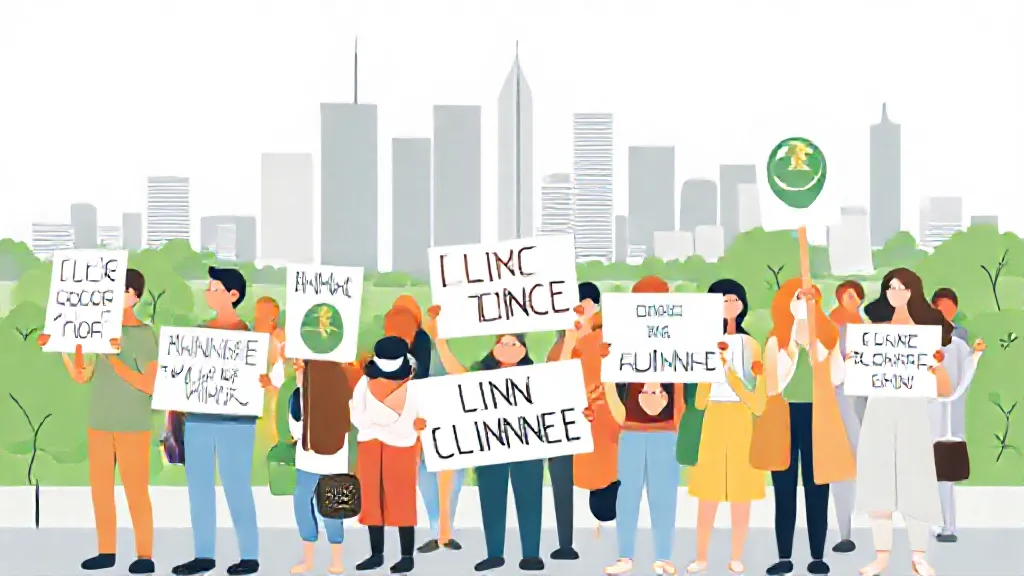In recent years, the role of individuals in shaping environmental policy has gained significant attention. As climate change and environmental degradation become increasingly pressing issues, the collective voice of citizens has the potential to influence government decisions and corporate practices. This article explores how individuals can effectively engage in environmental advocacy and impact policy change.
The Power of Grassroots Movements
Grassroots movements have emerged as a powerful force in environmental advocacy. These movements are often initiated by individuals or small groups who mobilize communities to raise awareness about specific environmental issues. For example, the global youth-led climate strikes, inspired by Greta Thunberg, demonstrate how individual action can spark widespread mobilization.
By organizing protests and utilizing social media, individuals can bring attention to environmental concerns and pressure policymakers to take action.
Utilizing Social Media for Advocacy
Social media platforms have revolutionized how individuals can engage with environmental issues. Activists can share information, organize events, and connect with like-minded individuals across the globe.
Campaigns like #FridaysForFuture and #SaveTheAmazon have gained momentum through social media, allowing individuals to amplify their voices and influence public opinion. This digital activism can lead to real-world policy changes as elected officials respond to the growing demand for environmental action.
Engaging in Local Politics
Individuals can also influence environmental policies by engaging in local politics.
Attending town hall meetings, participating in public comment periods, and advocating for sustainable practices within local governments are effective ways to make an impact. For instance, citizens can push for the implementation of recycling programs, renewable energy initiatives, and stricter regulations on pollution. By becoming active participants in local governance, individuals can directly shape the environmental policies that affect their communities.
Supporting Environmental Organizations
Another avenue for individuals to influence environmental policy is by supporting established environmental organizations. These organizations often have the resources and expertise to advocate for change at various levels of government. By donating, volunteering, or participating in campaigns, individuals can help amplify the efforts of these organizations.
For example, groups like the Sierra Club and Greenpeace have successfully lobbied for significant environmental legislation, demonstrating the impact of collective action.
Educating and Raising Awareness
Education plays a crucial role in environmental advocacy. Individuals can influence policy by educating themselves and others about environmental issues.
Hosting workshops, writing articles, or giving presentations can help raise awareness in communities about the importance of sustainability and the need for policy change. When individuals are informed, they are more likely to advocate for environmental protections and influence others to do the same.
Voting for the Environment
One of the most direct ways individuals can influence environmental policy is through voting.
Supporting candidates who prioritize environmental issues can lead to significant changes in policy at local, state, and national levels. Individuals can research candidates’ positions on environmental matters and advocate for those who align with their values. Engaging in the electoral process empowers individuals to hold elected officials accountable for their environmental commitments.
Participating in Citizen Science
Citizen science projects allow individuals to contribute to environmental research and data collection. By participating in these initiatives, individuals can help inform policy decisions based on scientific evidence. For example, projects that monitor air and water quality can provide valuable data to policymakers, highlighting the need for regulatory changes.
Citizen science not only empowers individuals but also strengthens the connection between science and policy.
The Future of Individual Influence
As environmental challenges continue to evolve, the role of individuals in shaping policies will become increasingly important. The rise of global movements and the accessibility of information through technology empower citizens to demand change.
By leveraging their voices, engaging in local politics, and supporting environmental initiatives, individuals can play a vital role in advocating for sustainable practices and policies. The future of environmental policy depends on the collective actions of informed and engaged citizens.
